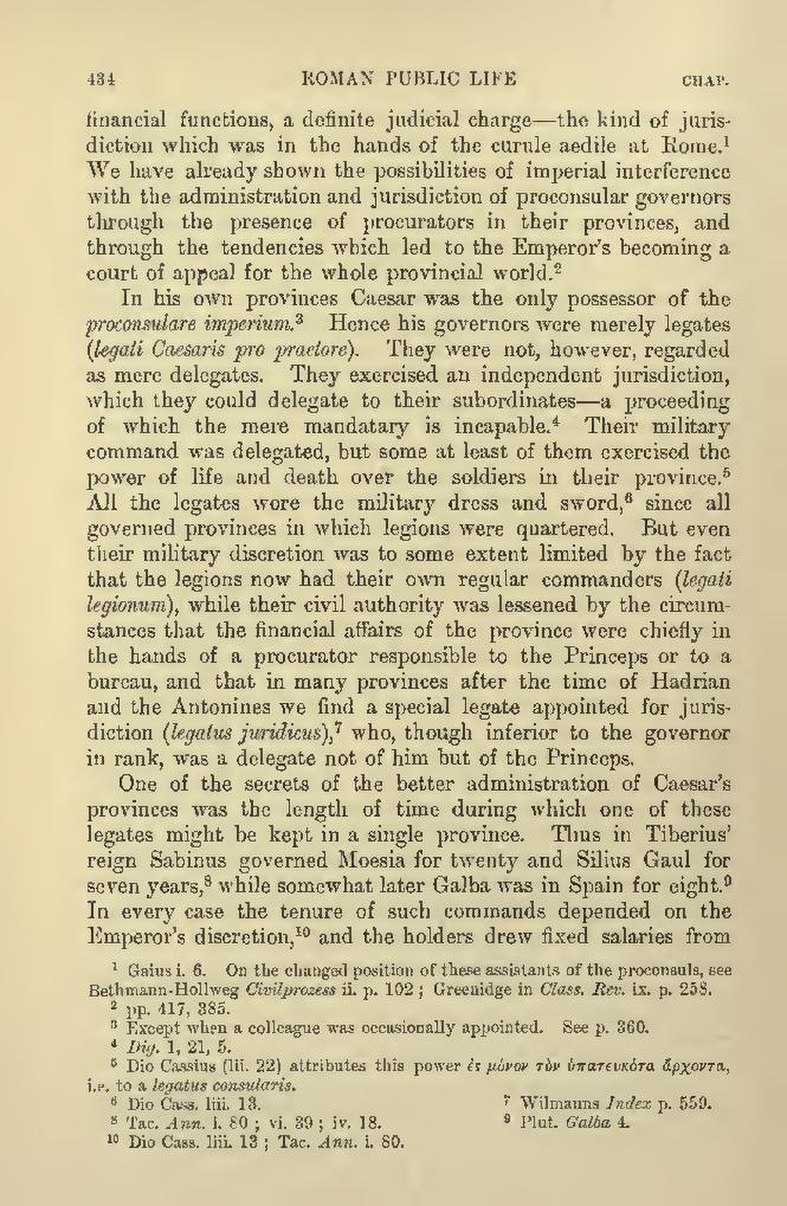financial functions, a definite judicial charge—the kind of jurisdiction which was in the hands of the curule aedile at Rome.[1] We have already shown the possibilities of imperial interference with the administration and jurisdiction of proconsular governors through the presence of procurators in their provinces, and through the tendencies which led to the Emperor's becoming a court of appeal for the whole provincial world.[2]
In his own provinces Caesar was the only possessor of the proconsulate imperium.[3] Hence his governors were merely legates (legati Caesaris pro praetore). They were not, however, regarded as mere delegates. They exercised an independent jurisdiction, which they could delegate to their subordinates—a proceeding of which the mere mandatary is incapable.[4] Their military command was delegated, but some at least of them exercised the power of life and death over the soldiers in their province.[5] All the legates wore the military dress and sword,[6] since all governed provinces in which legions were quartered. But even their military discretion was to some extent limited by the fact that the legions now had their own regular commanders (legati legionum), while their civil authority was lessened by the circumstances that the financial affairs of the province were chiefly in the hands of a procurator responsible to the Princeps or to a bureau, and that in many provinces after the time of Hadrian and the Antonines we find a special legate appointed for jurisdiction (legatus juridicus),[7] who, though inferior to the governor in rank, was a delegate not of him but of the Princeps.
One of the secrets of the better administration of Caesar's provinces was the length of time during which one of these legates might be kept in a single province. Thus in Tiberius' reign Sabinus governed Moesia for twenty and Silius Gaul for seven years,[8] while somewhat later Galba was in Spain for eight.[9] In every case the tenure of such commands depended on the Emperor's discretion,[10] and the holders drew fixed salaries from, i.e. to a legatus consularis.]
- ↑ Gaius i. 6. On the changed position of these assistants of the proconsuls, see Bethmann-Hollweg Civilprozess ii. p. 102; Greenidge in Class. Rev. ix. p. 258.
- ↑ pp. 417, 385.
- ↑ Except when a colleague was occasionally appointed. See p. 360.
- ↑ Dig. 1, 21, 5.
- ↑ Dio Cassius (lii. 22) attributes this power [Greek: es monon ton hypateukota archonta
- ↑ Dio Cass. liii. 13.
- ↑ Wilmanns Index p. 559.
- ↑ Tac. Ann. i. 80; vi. 39; iv. 18.
- ↑ Plut. Galba 4.
